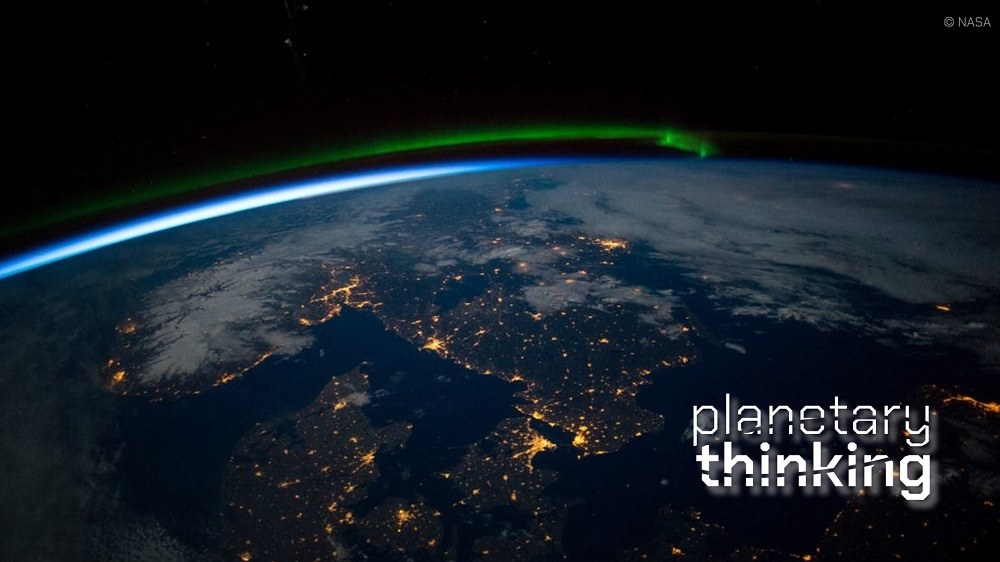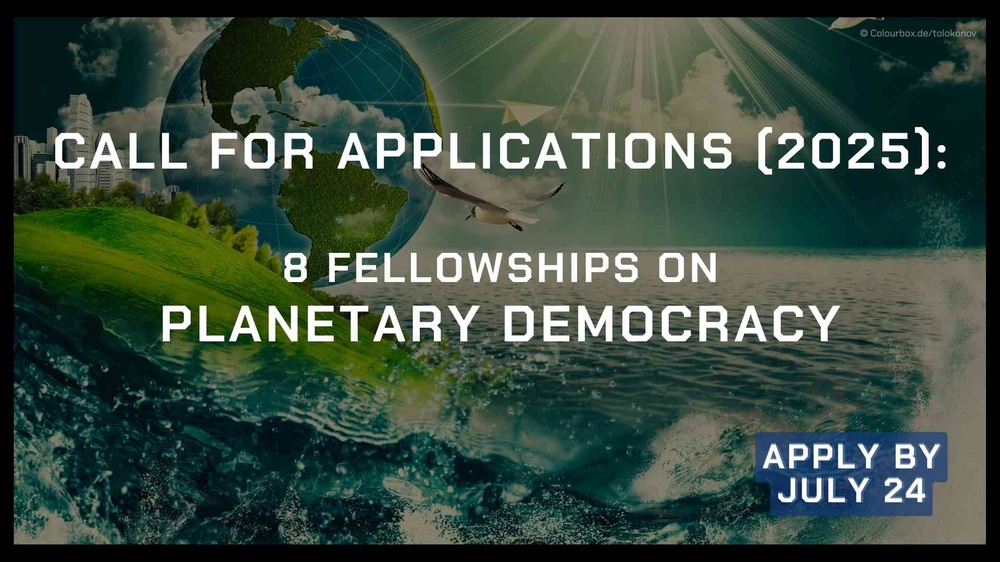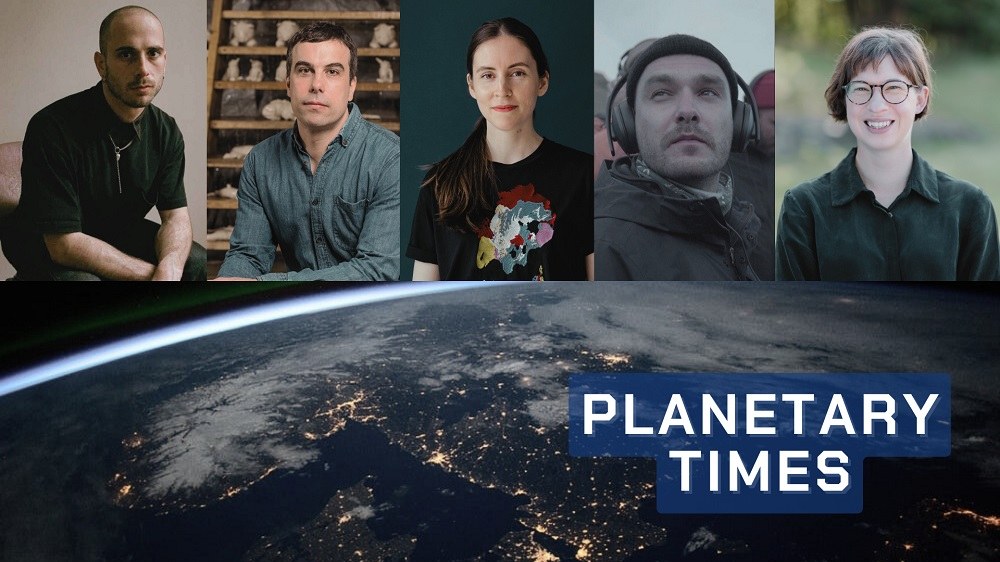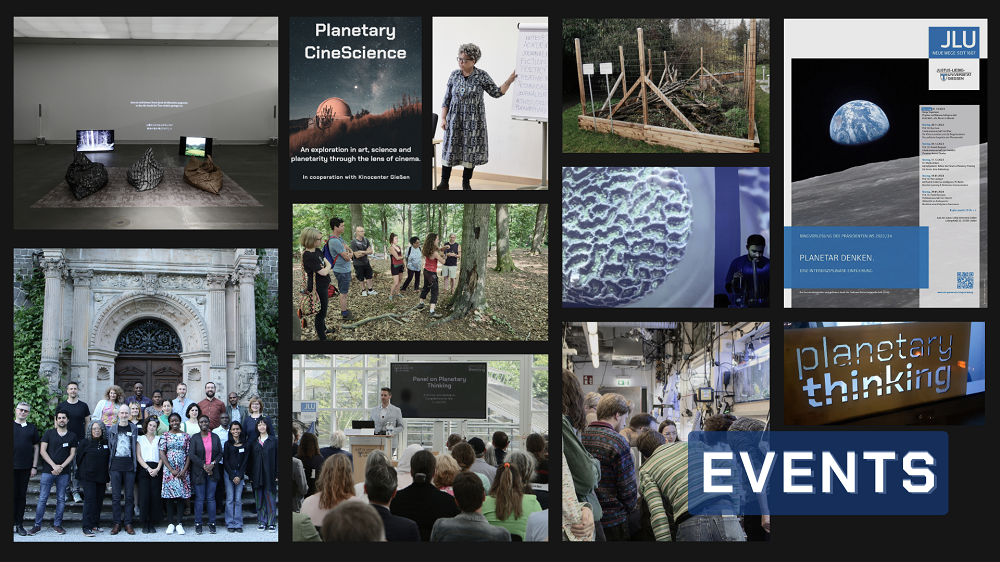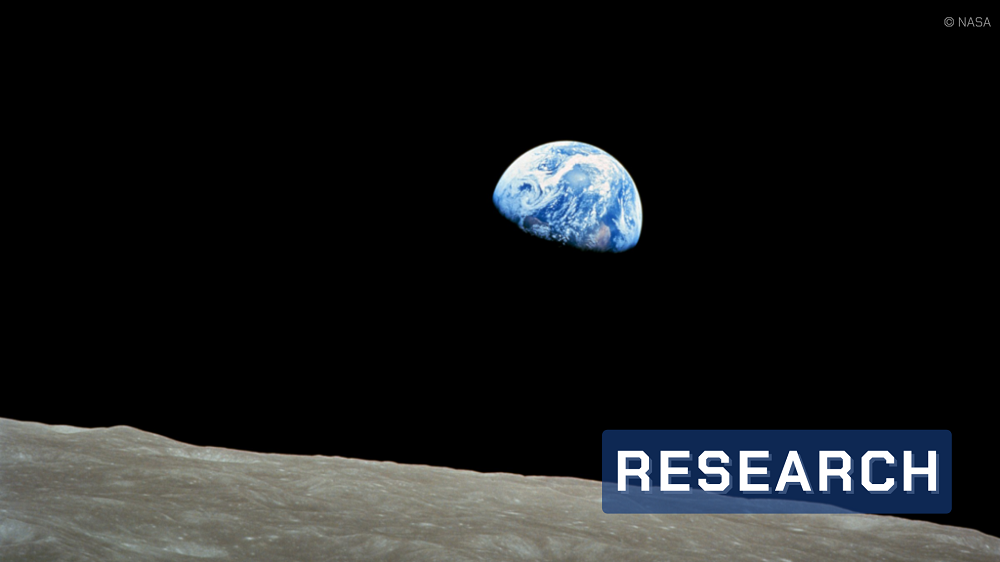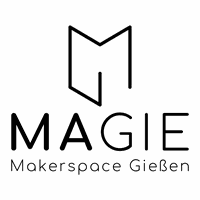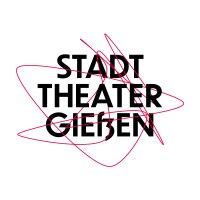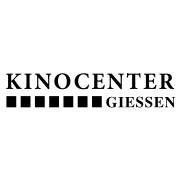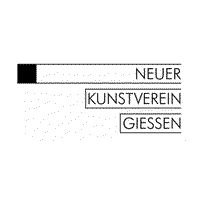Welcome to the Panel on Planetary Thinking!
Panel on Planetary Thinking
The Panel on Planetary Thinking consolidates knowledge at the University of Gießen to shape the international discourse through its own research perspective on planetary thinking. In collaboration with international scholars from various disciplines, as well as international artists, holistic perspectives on questions concerning planet-human relationships are advanced at JLU and beyond.
In the Panel’s most recent activity report you can find an overview on the activities coordinated between 2022 and 2023.
News
| Title | Description | Start Date | Image | |
|---|---|---|---|---|
| Call for Applications 2025: Planetary Scholars & Artists in Residence Program | For the fourth time, the Panel invites applications for the international, fully funded Planetary Scholars & Artists in Residence Program (2022-2025). The focus of this final round lies in designing the building blocks of a PLANETARY DEMOCRACY prototype; a new form of democratic government that aims at keeping the Earth habitable and includes more-than-human agents. In 2025, EIGHT three-month FELLOWSHIPS are awarded to individuals/transdisciplinary pairs with an advanced academic or artistic record relevant to the underlying themes (1) PLANETARY AGENCY and/or (2) PLANETARY POLITICS. Deadline to apply is July 24, 2024 – see our Call for Applications for more details. | Jul 24, 2024 12:00 | ||
| Call for applications PLANETARY FUTURES Competition Vol. III | The Panel on Planetary Thinking is announcing the Planetary Futures Competition for the last time within the period of 2022-2025. The aim of this competition is to provide financial support for transdisciplinary research projects that are in the preparatory phase for third-party funding applications. Application deadline is July 07, 2024. | Jul 07, 2024 12:00 | ||
| June 03, 2024 | Masterclass "Environmental Humanities: Natural History and Literatures in English" (IPP Masterclass) | The upcoming Masterclass, led by Prof. Dr. Clara Dawson, reflects upon different aspects of the Environmental Humanities and how its methods apply to different lines research by integrating perspectives from experts. It is targeted at anyone interested in new developments in the Environmental Humanities. With impulses by Panel Core Team members Liza Bauer and Meike Wiegand. | Jun 03, 2024 02:00 | ||
| Planetary Times Summer Workshop 2024: Bioreactors and Biospheres | Planetary Times Summer Workshop 2024: Bioreactors and Biospheres by Planetary Times fellow and Media Artist Connor Cook will be held from May 28-29 at Kunsthalle Giessen (our collaborative partner). The two-day workshop by Cook and Synthetic Biologist Darren Zhu comprises of a roundtable discussion on the theory of an “Informatic Evolution of the Planet”, a film screening & discussion, creating immersive audiovisual worlds using a Raspberry Pi enabled bioreactor (Pioreactor) as well as an audiovisual performance by the artist. | May 28, 2024 03:00 | ||
| May 10, 2024 | City Walk with Dr. Markus Dietz (Das Parlament für die Zukunft) | What would cities be without urban nature, and how can cities be developed in the future to accommodate both humans and wildlife? Following up upon this question, the Panel, in collaboration with Stadttheater Giessen, organizes a city walk through the Philosophenwald and the Wieseck-Aue with biologist Dr. Markus Dietz. | May 10, 2024 08:00 | ||
| May 3, 2024 | „Religion in Krisen – Lösung oder Teil des Problems?“ (Discussion Panel, german event) | What can religious communities, spiritual thinking, and pastoral care contribute to planetary thinking? Claus Leggewie discusses this with the author Otto Kallscheuer and theologians from Gießen. | May 03, 2024 06:00 | ||
| 23 & 24 April, 2024 | 2001 - A Space Odyssey (OmU 1968, Stanley Kubrick), movie discussion with Bert Rebhandl & Workshop on "Cinema as a Planetary Medium" (Planetary CineScience) | A classic in modern cinema, 2001 - A Space Odyssey still influences current planetary discourse. Tracing its legacy, the Panel on Planetary Thinking, in cooperation with Kinocenter Giessen, hosts a movie discussion with movie critic Bert Rebhandl and a subsequent workshop on the potential of cinema's contributions on planetary thinking. Tickets can be bought at Kinocenter Giessen, in case you want to take part in the workshop please register at panel@planet.uni-giessen.de . | Apr 23, 2024 07:00 | ||
| Jonathan S. Blake & Nils Gilman: Children of a Modest Star: Planetary Thinking for an Age of Crises (2024, Stanford University Press) | Our ‘Planetary Portal’ collaborators Jonathan S. Blake & Nils Gilman at the Berggruen Institute published a new book: CHILDREN OF A MODEST STAR is a vision for a new political system of political governance to manage planetary issues and their local consequences. | Apr 23, 2024 12:00 | ||
| April 2, 2024 - A warm welcome to our new Fellow in the Planetary Scholars & Artists Program! | We are very pleased to welcome our fellow Connor Cook to the Planetary Hub for the summer semester! This year's fellowship program is under the theme PLANETARY TIMES. | Apr 02, 2024 12:00 | ||
| February 12, 2024 | "Animal-Aided Design: Für eine Architektur des Artenreichtums", lecture by Prof. Dr. Thomas E. Hauck (Das Parlament für die Zukunft) | What does joyful climate protection look like, ensuring biodiversity and guaranteeing the future viability of our cities? Can humans and animals coexist peacefully? In the "Parliament for the Future," the Panel on Planetary Thinking, in cooperation with the Stadttheater Gießen, explores these questions and outlines various scenarios for sustainable coexistence. The lecture “Animal-Aided Design: Towards an Architecture of Biodiversity” by Thomas E. Hauck (Studio Animal-Aided Design, Technical University of Vienna) focused on sustainable and responsible urban planning. | Feb 12, 2024 08:00 | ||
| January 26 and 27, 2024 | Claus Leggewie speaks at the opening of networking workshop „Neues Denken oder Neue Technologien?“ | From January 26 to January 27, a network workshop on the interdisciplinary challenges of socio-ecological transformations took place at the Neues Schloss. Claus Leggewie, one of the co-founders of the Panel on Planetary Thinking, spoke as part of the event opening. | Jan 26, 2024 07:00 | ||
| New publication - Clemens Finkelstein, Claudia Hartl & Mathias Kessler: Planetary Forest (2024, Distanz-Verlag) | One of the works conducted by our Fellows in the "Planetary Materials"-cohort was the “Planetary Forest” intervention. The recently published book "Planetary Forest" documents the research process and the project’s evolution while introducing the art-science collective’s sociocultural and ecopolitical objectives. With contributions by the project participants Liza B. Bauer, Clemens Finkelstein, Frederic Hanusch, Claudia Hartl, Chiara Juriatti, Mathias Kessler, Holger Laake, Claus Leggewie, and Volker Wisseman. | Jan 05, 2024 12:00 |

